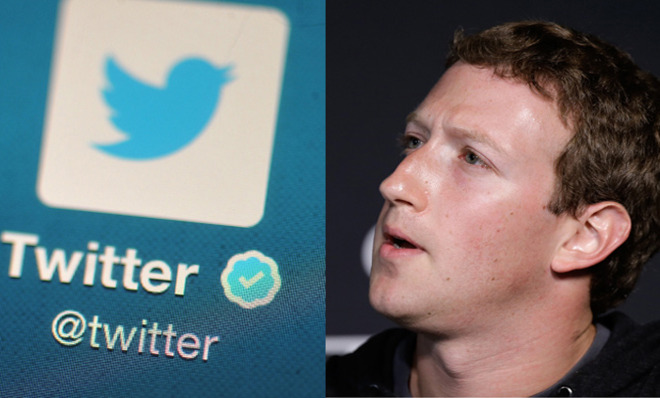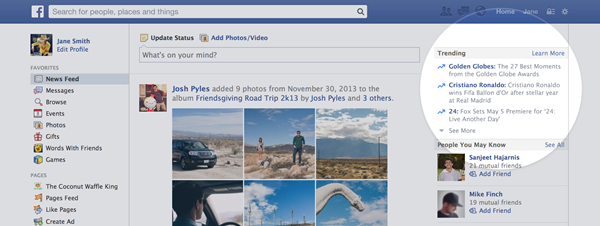Why Facebook wants to be more like Twitter
Hint: Twitter spreads news a lot faster

A free daily email with the biggest news stories of the day – and the best features from TheWeek.com
You are now subscribed
Your newsletter sign-up was successful
The big news in the tech world today is that Facebook is rolling out a newly redesigned "Trending" feature. Pretty soon, users will see a ticker on the right side of their News Feed that will spotlight what chatty Facebookers are yapping about.

If the feature looks familiar, it should be. It's basically Twitter's trending topics painted Facebook blue, plus a few minor differences.
"The list is personalized, including topics based on things you're interested in and what is trending across Facebook overall," explains engineering manager Chris Struhar in a blog post. "Each topic is accompanied by a headline that briefly explains why it is trending. You can click on any headline to see the most interesting posts from your friends or pages that are talking about that particular topic."
The Week
Escape your echo chamber. Get the facts behind the news, plus analysis from multiple perspectives.

Sign up for The Week's Free Newsletters
From our morning news briefing to a weekly Good News Newsletter, get the best of The Week delivered directly to your inbox.
From our morning news briefing to a weekly Good News Newsletter, get the best of The Week delivered directly to your inbox.
Click on the word "Golden Globes" in the module, for example, and you'll be taken to a page full of people talking about the drunken gabfest-cum-awards ceremony. Or at least that's the idea.
So why is Facebook interested in becoming more like Twitter?
On the Twitter, news moves fast. On Facebook, it doesn't. That's partly because it's just really, really big. But it's also because of the way Facebook's News Feed relies on algorithms to organize content, unlike Twitter, which is 99 percent chronological. Breaking news often gets swept away on Facebook, lost in a sea of BuzzFeed listicles.
Furthermore, journalists and content producers simply like and use Twitter more. It's an indispensable part of many influential folks' media diets, and Facebook wants in.
A free daily email with the biggest news stories of the day – and the best features from TheWeek.com
Mark Zuckerberg has long expressed a deep interest in winning over publishers, which he sees as essential to Facebook's own essentialness as a platform. No new content means there's no reason to keep checking Facebook.
Facebook is trying to achieve that goal in a few ways. News broke earlier this week that Facebook was planning on building its own version of Flipboard, a reader that arranges web links into a pretty magazine format. Before that, Facebook tweaked its algorithm to gift web publishers — including TheWeek.com — a massive boost in traffic, while filtering out "low-quality content" like memes. And before that, Facebook began courting celebrities in hopes of establishing some symbiotic relationships, which Twitter seems to know a thing or two about.
Now, it's giving whatever people around the globe are discussing some prime real estate.
Facebook wants in on the news business to capitalize on your Fear of Missing Out. Like Twitter, it wants to be the first thing you see in the morning, the last thing you check at night, and the thing you obsessively check during all the hours in between. It wants Reddit's self-anointed title of the front page of the internet.
Facebook's goal, in other words, is complete ubiquity. That's pretty trendy.
-
 6 of the world’s most accessible destinations
6 of the world’s most accessible destinationsThe Week Recommends Experience all of Berlin, Singapore and Sydney
-
 How the FCC’s ‘equal time’ rule works
How the FCC’s ‘equal time’ rule worksIn the Spotlight The law is at the heart of the Colbert-CBS conflict
-
 What is the endgame in the DHS shutdown?
What is the endgame in the DHS shutdown?Today’s Big Question Democrats want to rein in ICE’s immigration crackdown